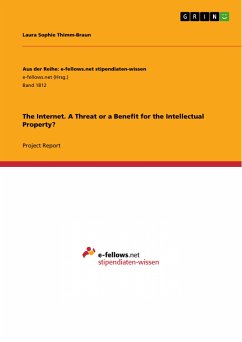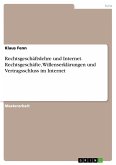Project Report from the year 2013 in the subject Law - Miscellaneous, grade: 13, University of Leipzig (Institut für Grundlagen des Rechts), course: Exploring Legal Cultures Project - Partnership Leipzig/Malang - Jakarta, language: English, abstract: Over the last few decades the digital media became a new form of communication. It is now impossible to imagine a life without the use of CDs, DVDs, USB drives and the Internet. Digital media and communication networks are creating a significant difference for international exchange and technological development. The term of "digital media products" refers to"intellectual products made available in digital electronic form, whether operational in computers or other machines capable of reading works in digital form". Especially for the economic flow it is of great importance to support the safety of digital media. In this context, however, many conflicts have come up, most recently on the issue of online privacy and property rights. They are expressed in contradicting interests of intellectual property rights-holders and the general public. On one hand it is necessary to protect the original creative investment and enable legal reuse of works. On the other hand the interest of intellectual property right holders and users must be recognized. In order to achieve a balance between these contradicting interests an adaption of the legal backdrop in respect of property laws to the new media cultures is necessary. Current jurisdiction, as will be argued in this paper, can not yet cover the new patterns of use on the Internet.
Dieser Download kann aus rechtlichen Gründen nur mit Rechnungsadresse in A, B, BG, CY, CZ, D, DK, EW, E, FIN, F, GR, HR, H, IRL, I, LT, L, LR, M, NL, PL, P, R, S, SLO, SK ausgeliefert werden.









